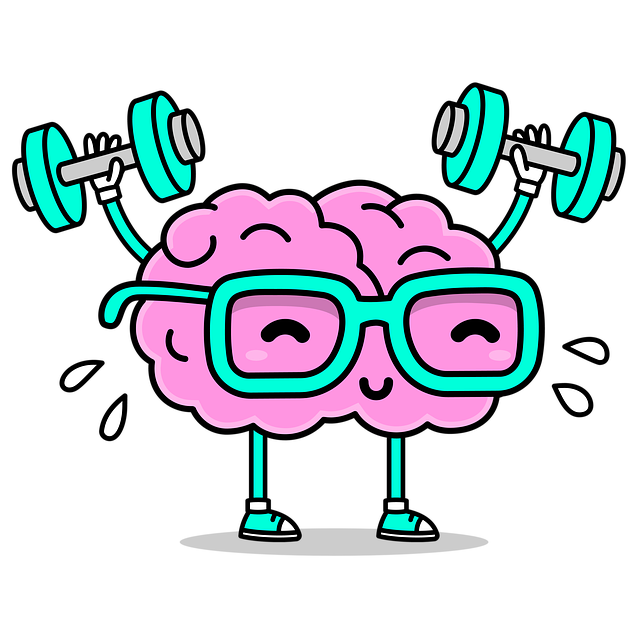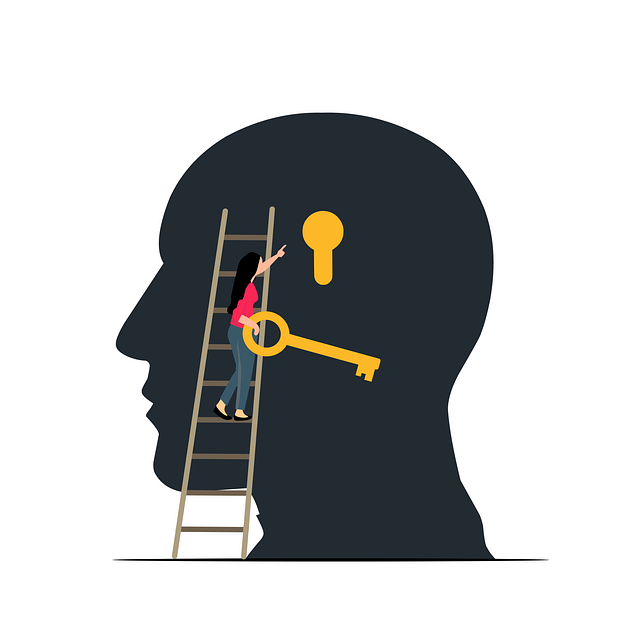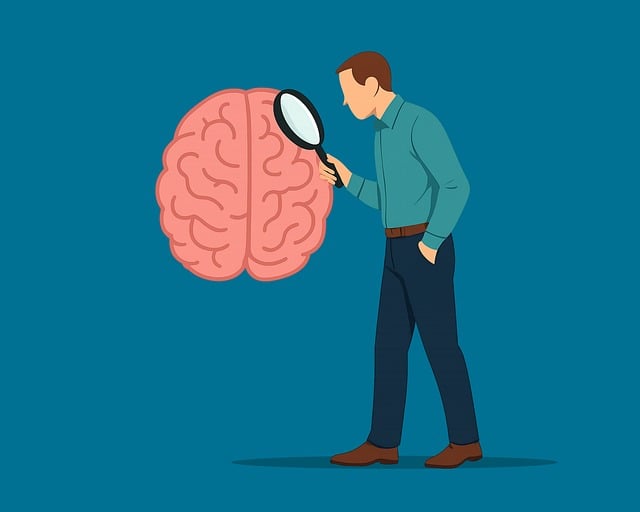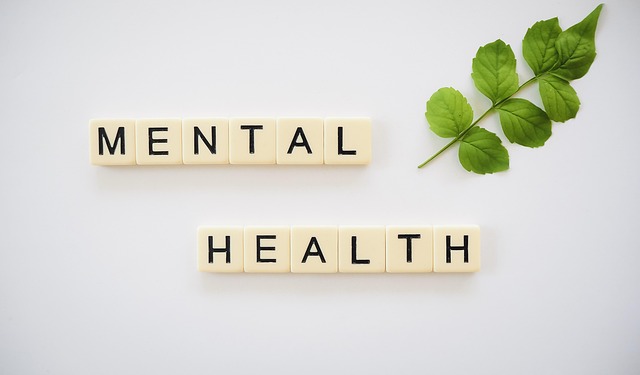Louisville Anxiety Therapy leverages Emotional Intelligence (EI) as a core treatment approach for mental wellness. By enhancing self-awareness, empathy, and emotional regulation through practices like mindfulness and cognitive reframing, clients develop healthier coping mechanisms to manage stress, anxiety, and trauma. These skills not only improve individual relationships but also empower individuals to navigate life's challenges with resilience and positive outlook, fostering a more balanced and fulfilling life. Louisville Anxiety Therapy extends its reach through community outreach programs, making these transformative tools accessible to a wider audience.
Emotional intelligence (EI) is a powerful tool for enhancing mental well-being. In this article, we explore how EI can be cultivated through various practical strategies, with insights from Louisville Anxiety Therapy. We’ll delve into understanding EI’s impact on mental health, identifying and managing emotions, boosting self-awareness, practicing empathy, and regulating emotions effectively. Discover techniques to navigate life’s challenges with greater ease and strengthen your relationships through the lens of Louisville Anxiety Therapy.
- Understanding Emotional Intelligence and Its Impact on Mental Well-being
- Identifying and Managing Your Emotions: A Louisville Anxiety Therapy Perspective
- Enhancing Self-Awareness: The First Step in Building Emotional Intelligence
- Practicing Empathy: How It Can Strengthen Relationships and Reduce Anxiety
- Strategies for Regulating Emotions: Techniques from Louisville Anxiety Therapy
Understanding Emotional Intelligence and Its Impact on Mental Well-being

Emotional intelligence (EI) refers to an individual’s ability to recognize, understand, and manage their own emotions, as well as empathize with others’ emotional states. This skill set goes beyond mere sentimentality; it’s a powerful tool that impacts every aspect of our lives. In Louisville Anxiety Therapy, for instance, EI is often a cornerstone of treatment plans aimed at improving mental wellness. By enhancing one’s emotional intelligence, individuals can cultivate better coping mechanisms, reduce stress and anxiety, and strengthen their relationships.
Moreover, developing empathy building strategies contributes significantly to resilience building. When we can recognize and empathize with others’ emotions, it fosters more supportive social connections, enhances our problem-solving abilities, and promotes a stronger sense of mental wellness. This understanding is crucial for navigating life’s challenges and fostering a positive outlook.
Identifying and Managing Your Emotions: A Louisville Anxiety Therapy Perspective

In Louisville Anxiety Therapy, we recognize that emotional intelligence is a cornerstone of mental well-being. The first step in building emotional intelligence is identifying your emotions accurately. This involves being attuned to both your internal experiences and external triggers. Through self-awareness exercises, clients learn to recognize subtle cues their bodies send when certain emotions arise. Once identified, managing these emotions becomes more achievable. Louisville Anxiety Therapy provides a safe space for individuals to explore and express their feelings without judgment.
Our approach integrates compassion cultivation practices, which encourage individuals to develop kindness and understanding towards themselves and others. By fostering self-compassion, clients can better navigate difficult emotions, reduce anxiety, and enhance overall emotional resilience. Trauma support services are also an integral part of our process, helping individuals process past traumas that may be influencing their present emotional responses. We believe in empowering our clients to lead more balanced and fulfilling lives by cultivating emotional intelligence.
Enhancing Self-Awareness: The First Step in Building Emotional Intelligence

Enhancing self-awareness is a pivotal step in cultivating emotional intelligence, especially for individuals seeking Louisville anxiety therapy. It involves recognizing and understanding your emotions, both as they arise within you and their impact on your thoughts and behaviors. This foundation of mindfulness allows one to interpret internal feelings accurately, fostering healthier responses to life’s challenges.
By developing self-awareness, individuals can begin to unravel the complex relationship between their thoughts, emotions, and actions. It encourages folks to question and challenge negative thought patterns and beliefs, often at the root of mental wellness issues. In turn, this heightened awareness contributes to reduced mental illness stigma through personal growth and a deeper understanding of the human experience, making it a crucial aspect of any journey towards improved emotional intelligence.
Practicing Empathy: How It Can Strengthen Relationships and Reduce Anxiety

Practicing empathy is a powerful tool for strengthening relationships and fostering a sense of connection with others. It involves understanding and sharing the feelings of someone else, allowing us to build deeper, more meaningful bonds. In Louisville Anxiety Therapy circles, this skill is often cultivated through active listening and open dialogue, helping individuals recognize and validate their own emotions as well as those of others. By putting ourselves in someone else’s shoes, we can gain valuable insights into their experiences and perspectives, leading to improved communication and conflict resolution.
This simple yet profound act of empathy has been shown to reduce anxiety and promote mental wellness. When we empathize, we create a safe space for individuals to express themselves without judgment, encouraging them to open up about their struggles and fears. Through this sharing, emotional healing processes can begin, allowing people to feel understood and supported. Additionally, mental wellness journaling exercises guided by empathy can provide individuals with an outlet to process their emotions, track progress, and gain self-awareness—all crucial components in navigating Louisville’s anxiety therapy landscape.
Strategies for Regulating Emotions: Techniques from Louisville Anxiety Therapy

Emotional regulation is a cornerstone of emotional intelligence, and Louisville Anxiety Therapy offers valuable insights into this domain. Their strategies focus on helping individuals understand and manage their emotions effectively. One key technique involves mindfulness practices, encouraging people to be present with their feelings without judgment. This simple yet powerful tool allows for better awareness and control over reactive responses. By learning to observe emotions as passing experiences rather than permanent states, individuals can reduce the intensity of negative reactions.
Additionally, Louisville Anxiety Therapy promotes cognitive reframing, a technique that involves challenging and changing unhelpful thought patterns associated with emotions. This process helps foster positive thinking (a crucial aspect of mental health policy analysis and advocacy) and encourages individuals to view challenges as opportunities for growth. Community outreach program implementation can also play a role in spreading these techniques, making emotional intelligence building accessible to a wider audience.
Emotional intelligence is a powerful tool for enhancing mental well-being, fostering strong relationships, and managing anxiety. By understanding and identifying our emotions, practicing empathy, and adopting effective regulation strategies, we can significantly improve our emotional intelligence. Louisville Anxiety Therapy offers valuable insights and techniques to navigate these aspects, ultimately leading to a more balanced and fulfilling life. Remember that building emotional intelligence is a journey, and with consistent practice, anyone can become more adept at managing their emotions and connecting with others on a deeper level.














